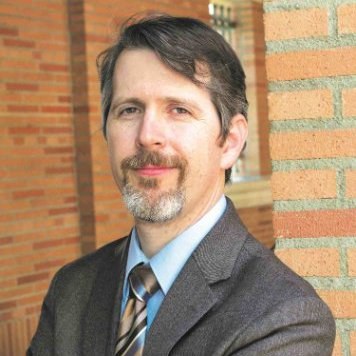
Professional Bio
Gary has examined how progressive religious organizations produce empathy for immigrants and is currently examining how religious social movement organizations changed discourse and law about religious freedom and religious establishment in American government.
Research Interests
Transnational Civic Engagement, Religious Activism, Immersion LearningRelated Materials
Adler, G. (2019). Empathy beyond US borders: The challenges of transnational civic engagement. Cambridge University Press.
How do middle-class Americans become aware of distant social problems and act against them? US colleges, congregations, and seminaries increasingly promote immersion travel as a way to bridge global distance, produce empathy, and increase global awareness. But does it? Drawing from a mixed methods study of a progressive, religious immersion travel organization at the US-Mexico border, Empathy Beyond US Borders provides a broad sociological context for the rise of immersion travel as a form of transnational civic engagement. Gary J. Adler, Jr follows alongside immersion travelers as they meet undocumented immigrants, walk desert trails, and witness deportations. His close observations combine with interviews and surveys to evaluate the potential of this civic action, while developing theory about culture, empathy, and progressive religion in transnational civic life. This timely book describes the moralization of travel, the organizational challenges of transnational engagement, and the difficulty of feeling transformed but not knowing how to help.
Adler Jr, G. J., & Offutt, S. (2017). The Gift Economy of Direct Transnational Civic Action: How Reciprocity and Inequality Are Managed in Religious “Partnerships”. Journal for the Scientific Study of Religion, 56(3), 600-619.
How does religion help facilitate civic action in transnational contexts characterized by material inequality and spatial separation? Short-term mission (STM) travel, a popular activity among U.S. religious groups, exemplifies a recently emerged form of transnational civic action characterized by face-to-face, decentralized, pragmatic activity. Our research analyzes how participants in STM-based relationships manage inequality while pursuing an ideal of partnership across distance. We match data from a mixed methods study of Arizona congregations that produce STM travel with interview data from foreign religious organizations that host STM travelers in El Salvador. We engage gift exchange theory (GET) to show how a discursive repertoire combines with organized gift exchange practices to manage inequality and produce partnership in STM-based relationships. Our data provide evidence of a unique cultural process, the spiritualization of reception, which emerges during gift reciprocation. This process converts unequal material gifts from foreign hosts into spiritual understanding among STM travelers, stabilizing status indebtedness that could threaten a partnership. This research increases knowledge of STM travel, shows how gift exchange structures can facilitate transnational religious partnerships, and suggests ways to use GET to understand transnational civic action in general.
Beyerlein, K., Adler, G., & Trinitapoli, J. (2011). The effect of religious mission trips on youth civic participation. Journal for the Scientific Study of Religion, 50(4), 780-795.
Religious short-term mission trips are an increasingly popular form of American religious practice, especially among young people. Both organizers and participants often emphasize their transformative nature. However, scholarly efforts to evaluate systematically the social consequences of religious short-term mission trips are lacking. To address this neglect, our article investigates whether going on a religious short-term mission trip significantly differentiates youth who engage in civic actions from those who do not. Based on quantitative analysis of Wave I of the National Survey of Youth Religion (NSYR), we find that, controlling for other important factors, taking a mission trip significantly increases the likelihood of adolescents participating in various forms of civic activity, particularly religious-based volunteer work. Drawing on prior scholarship on religious short-term mission and similarly focused trips and in-depth interview data from trip participants, we outline several theoretical mechanisms that likely explain the link between taking a mission trip and civic engagement.